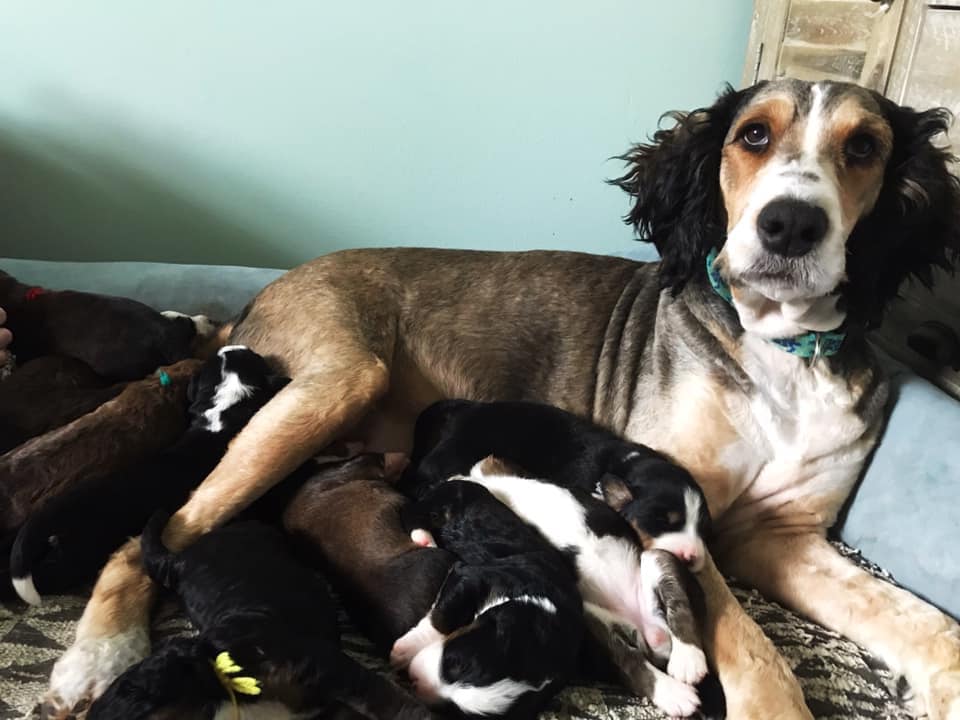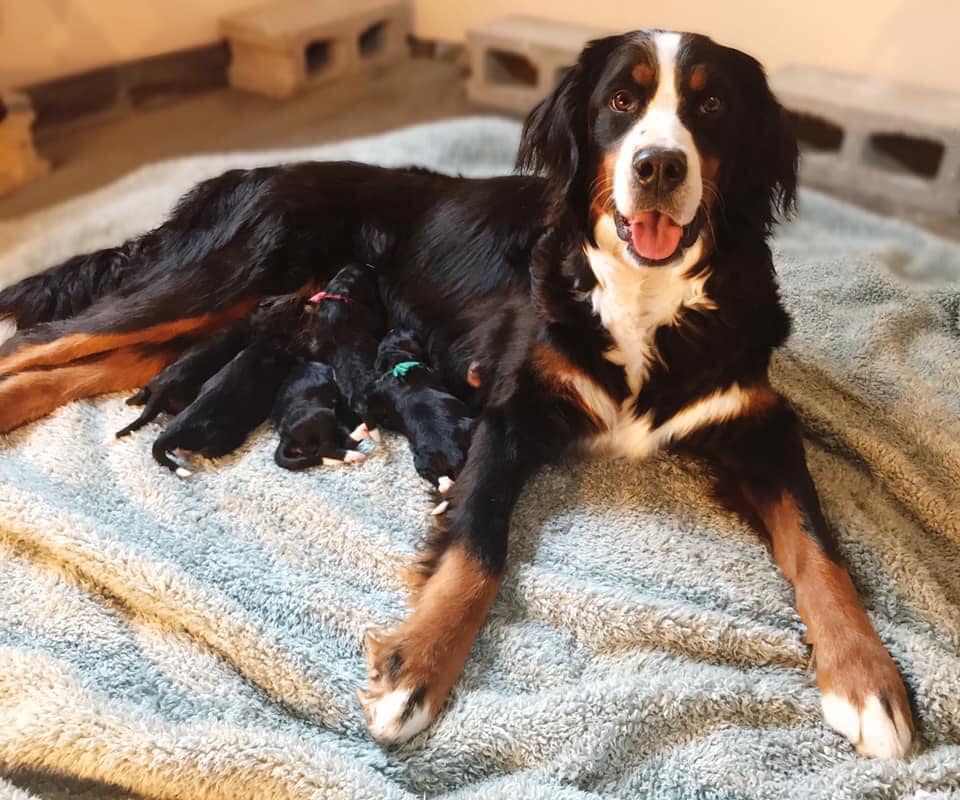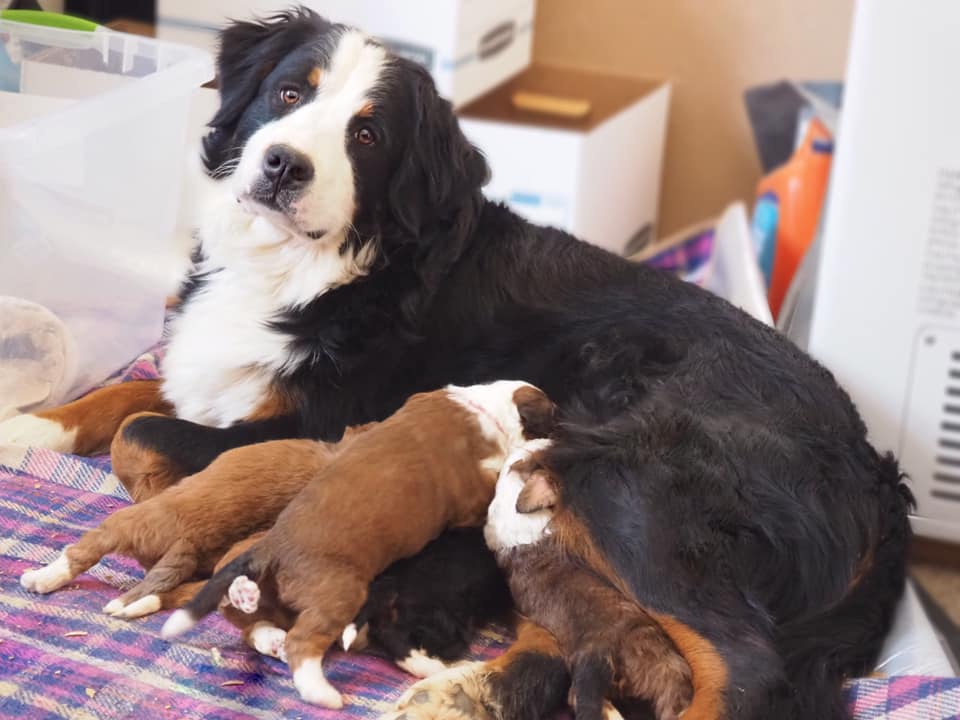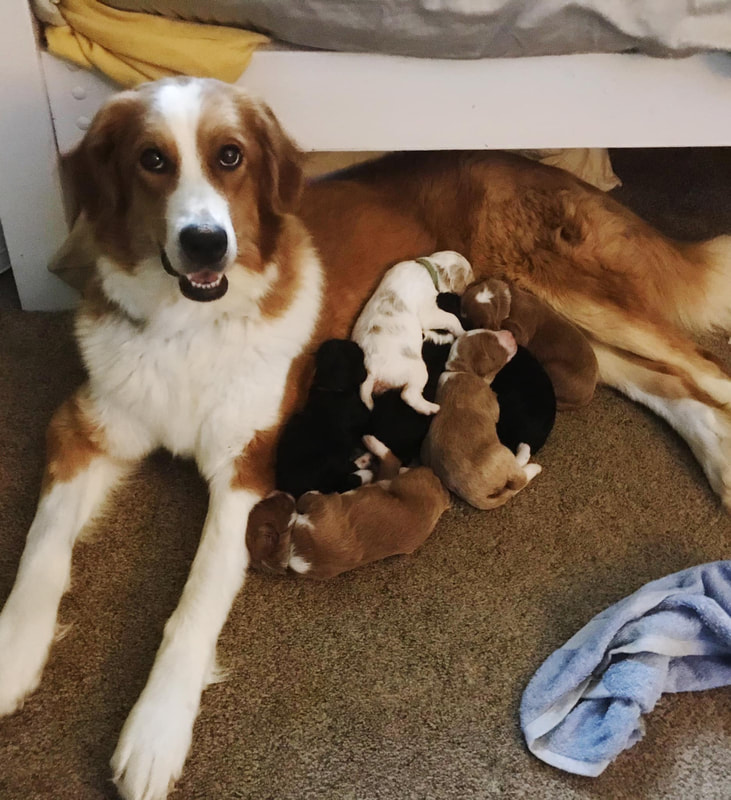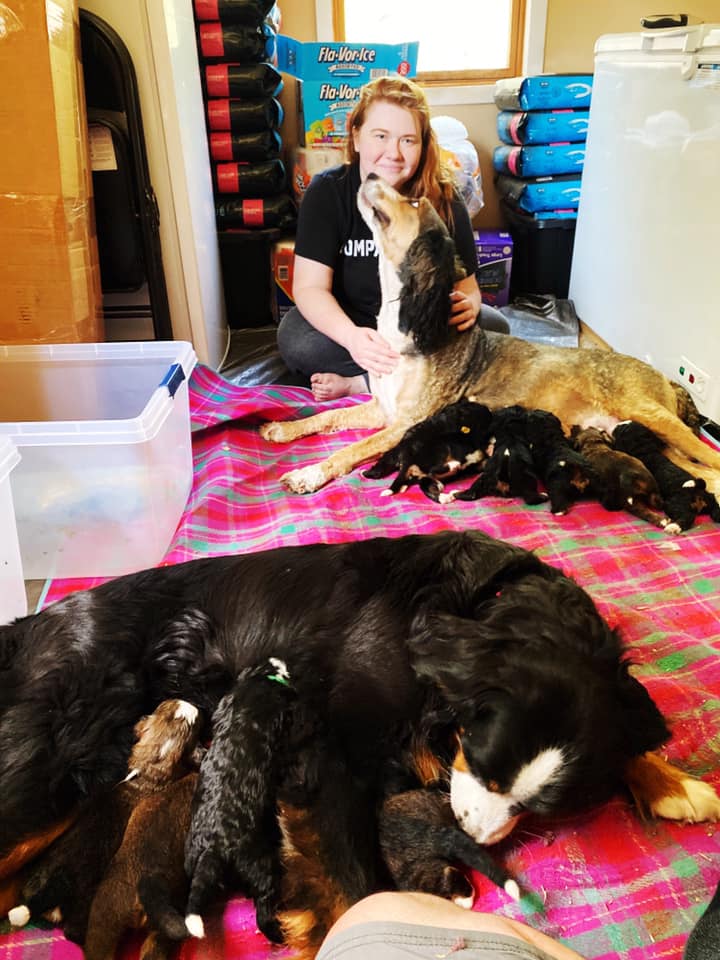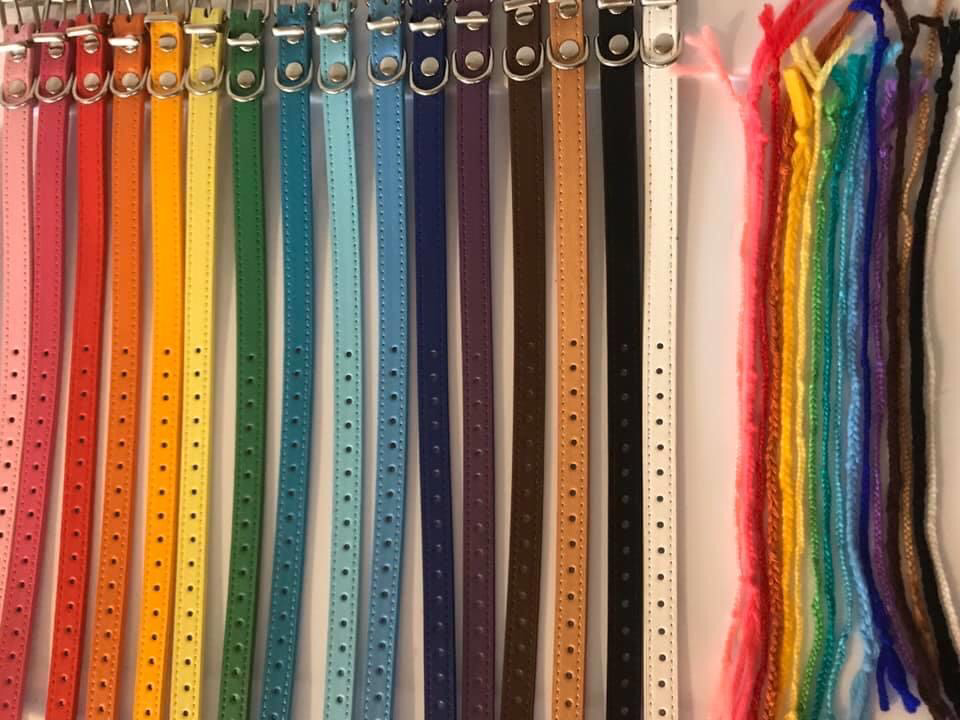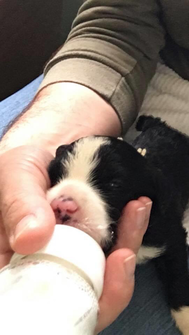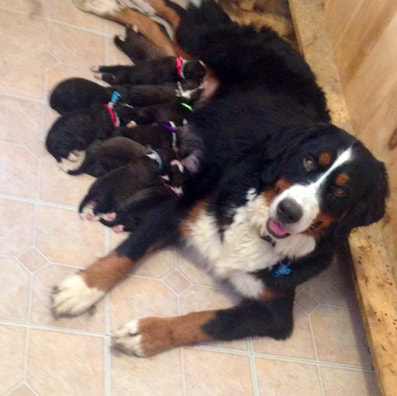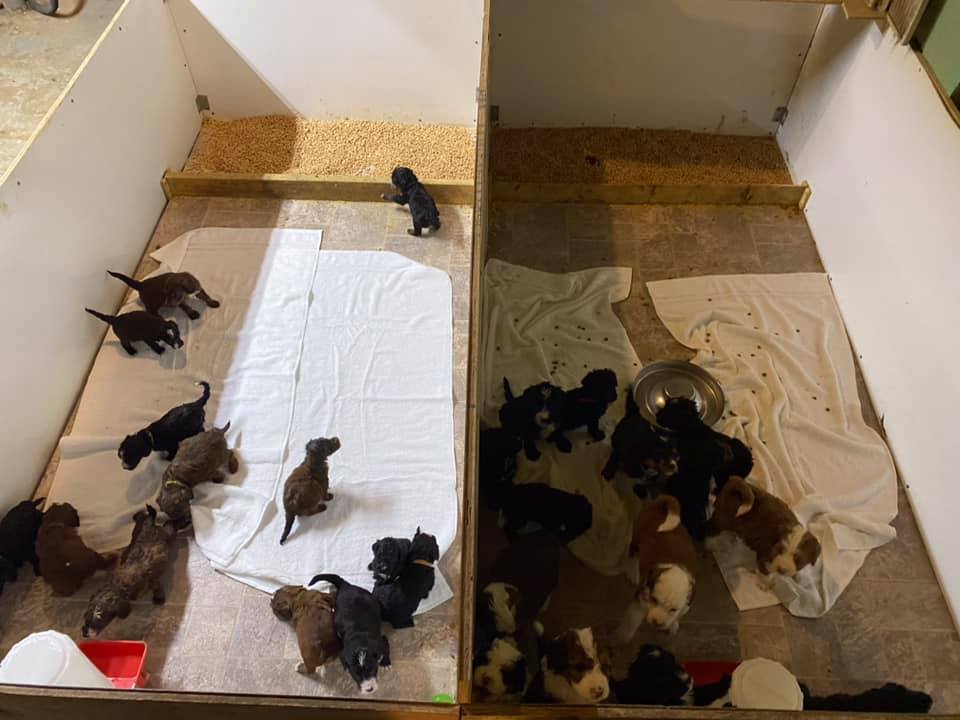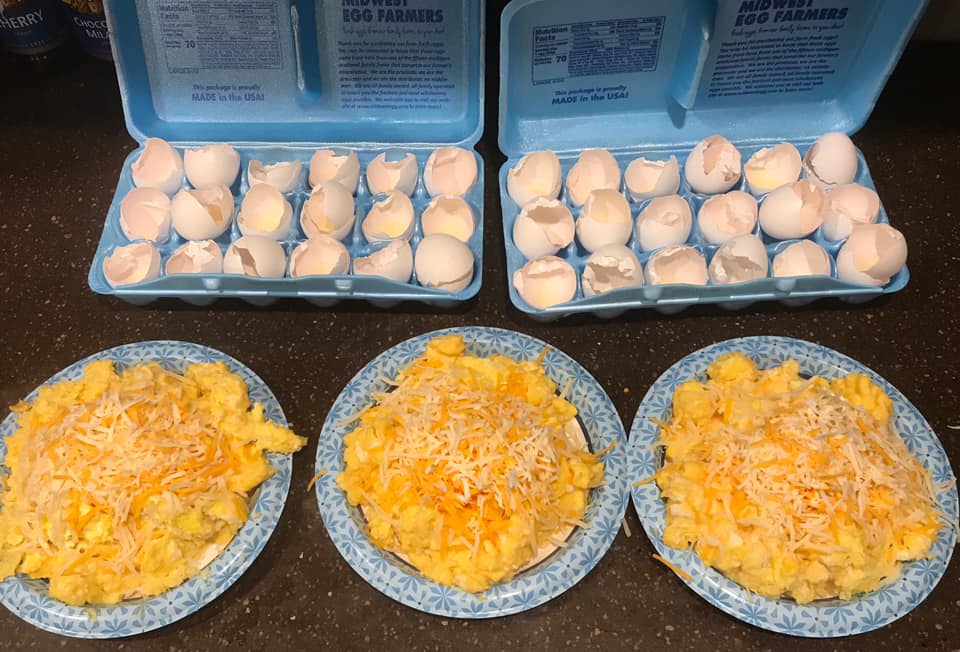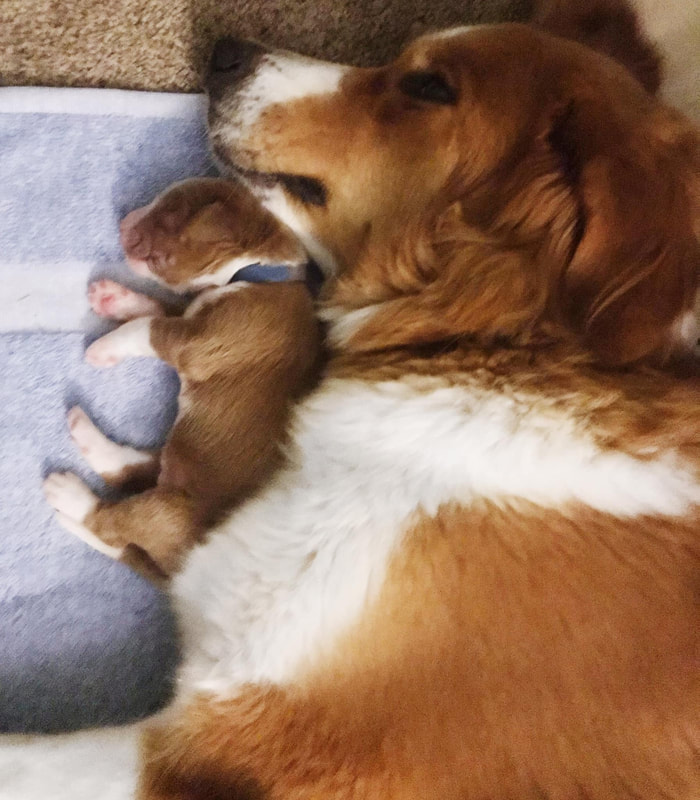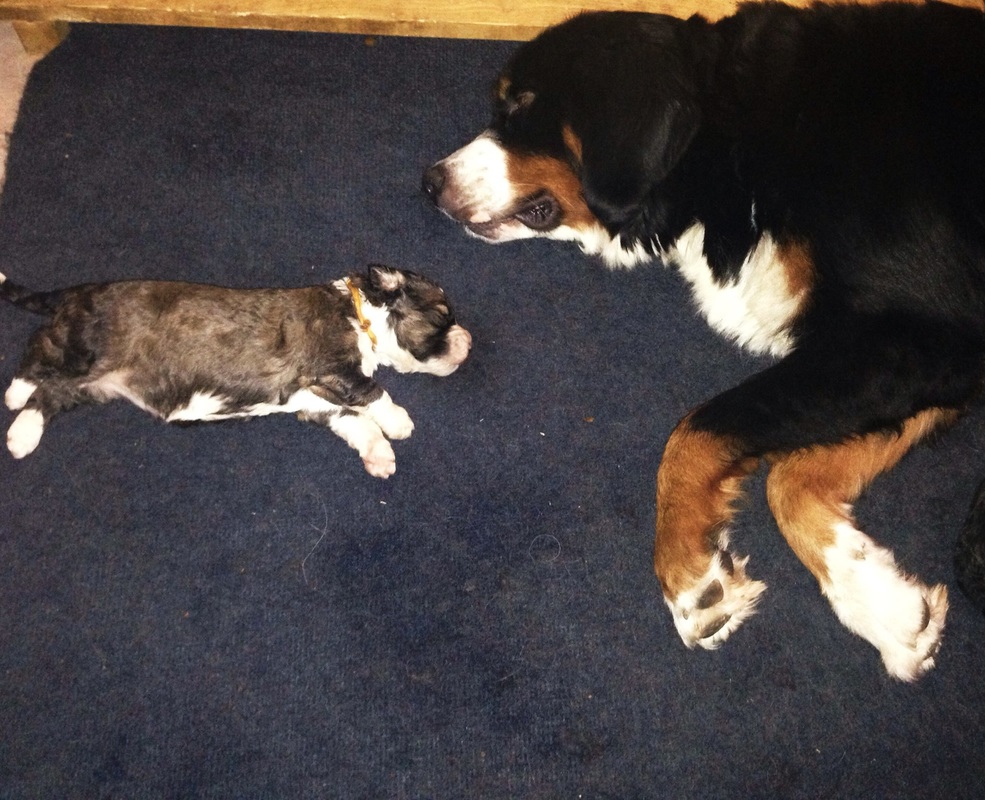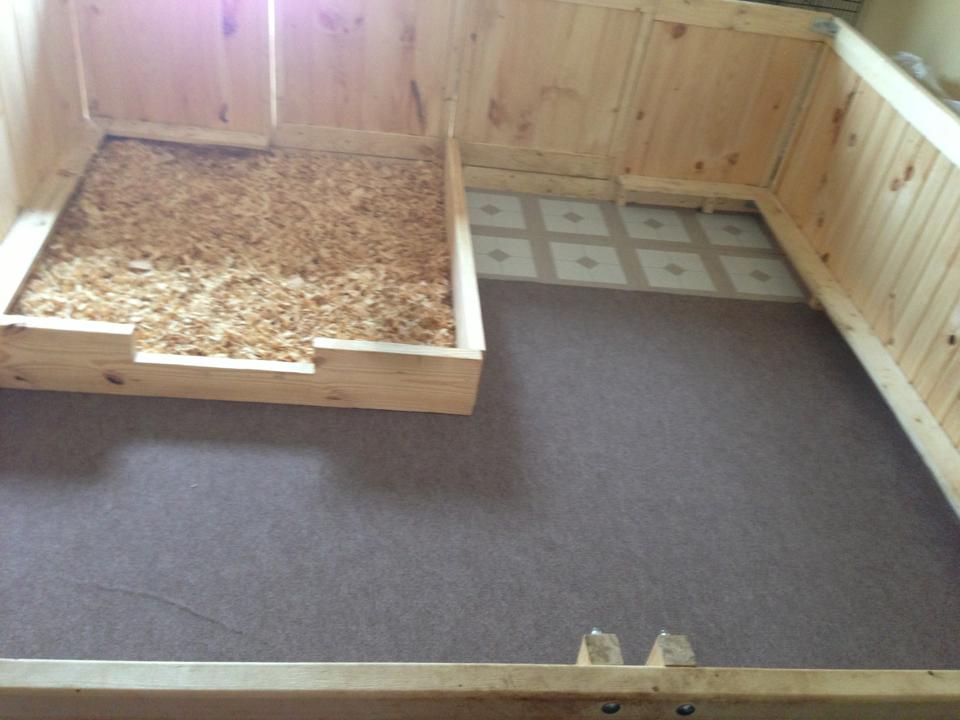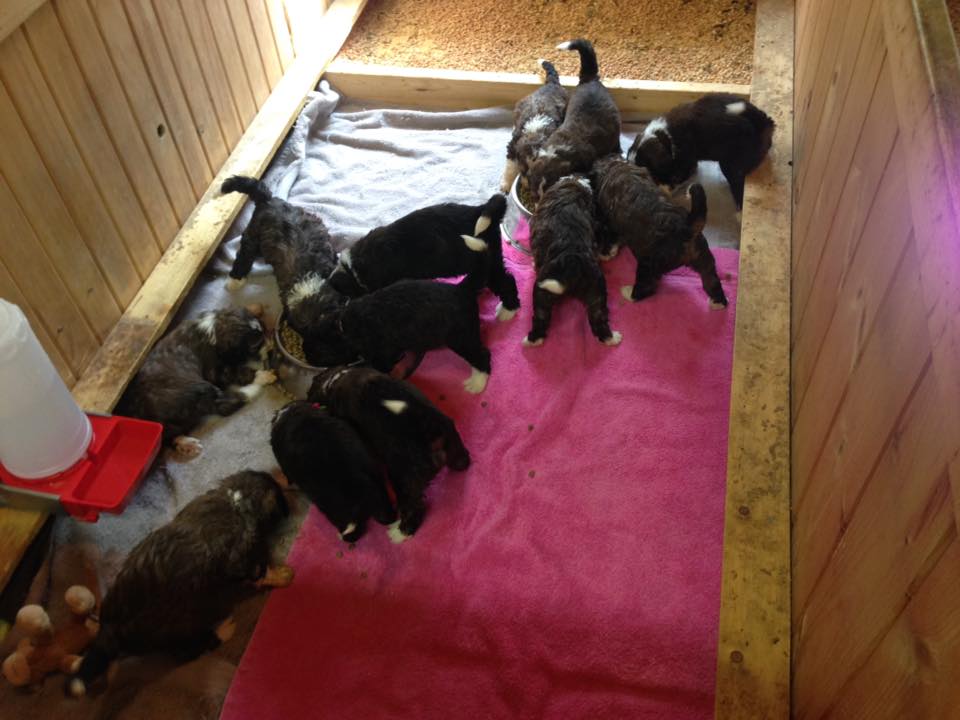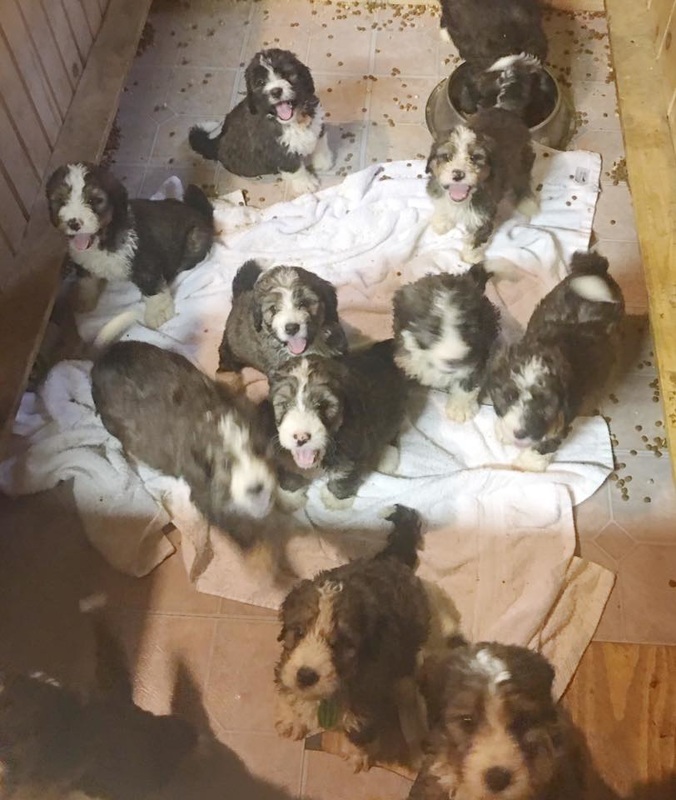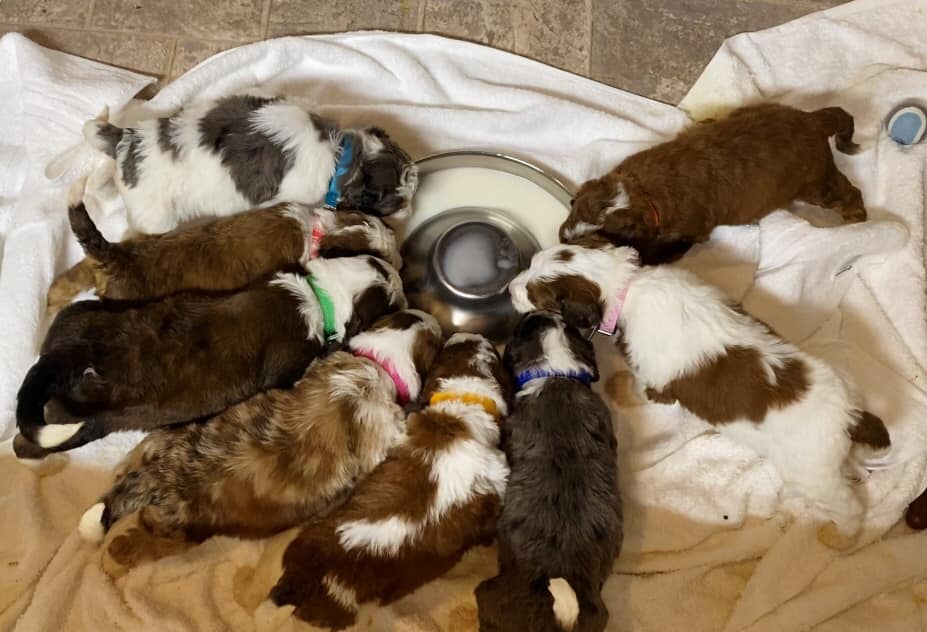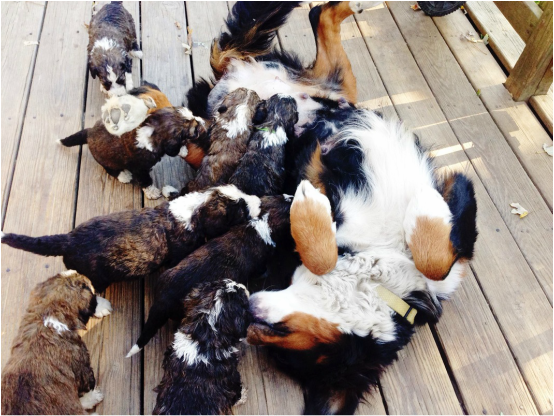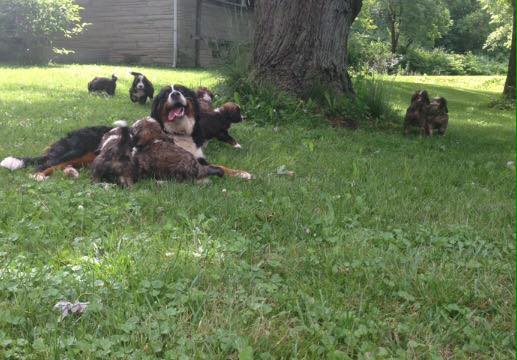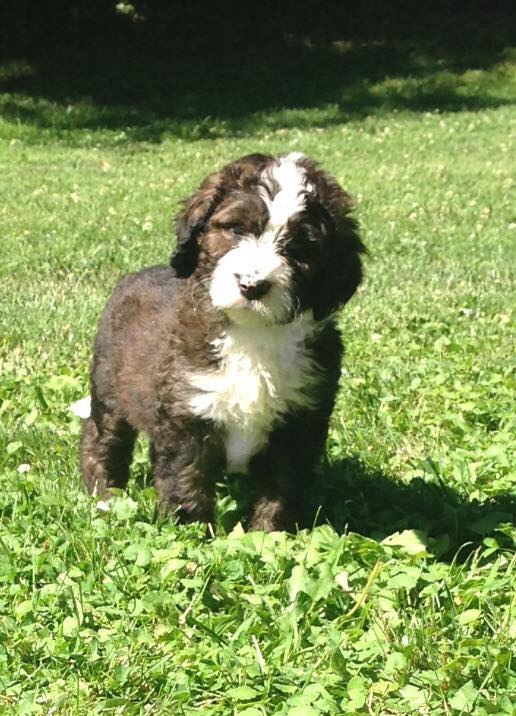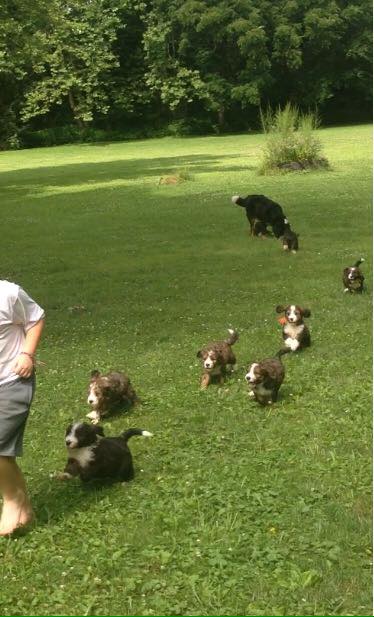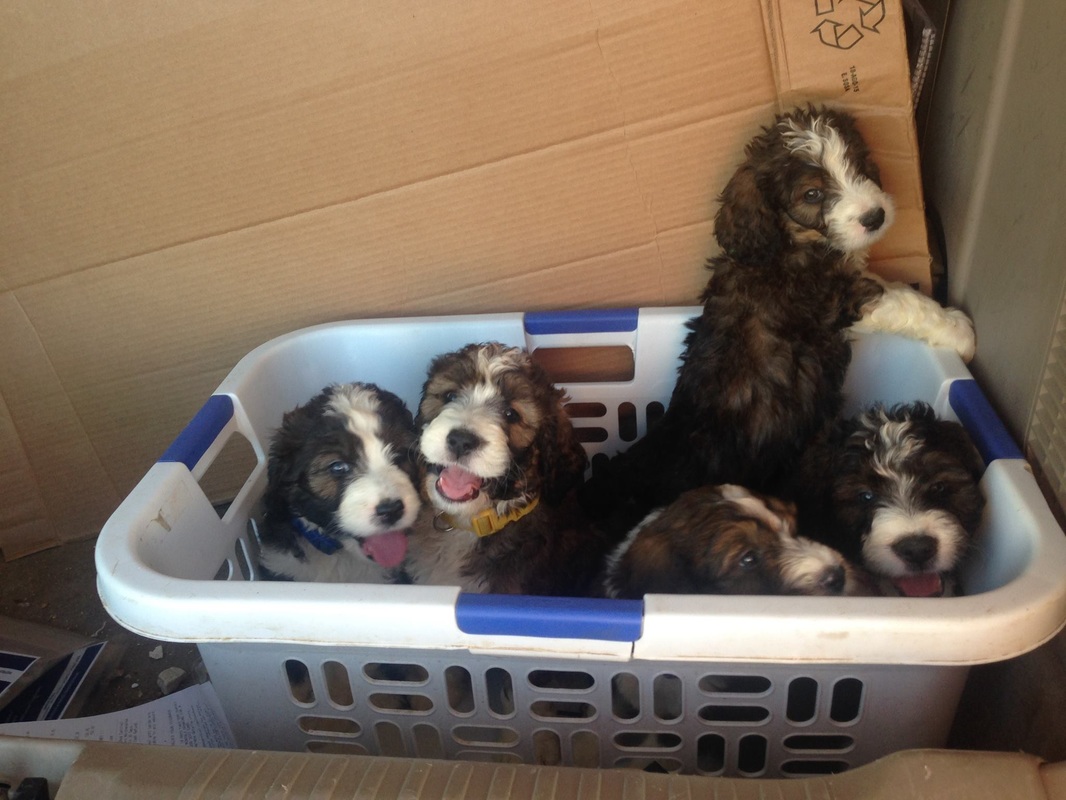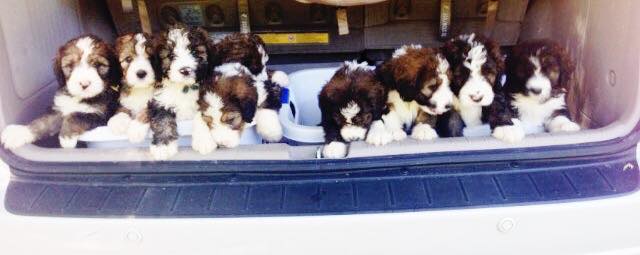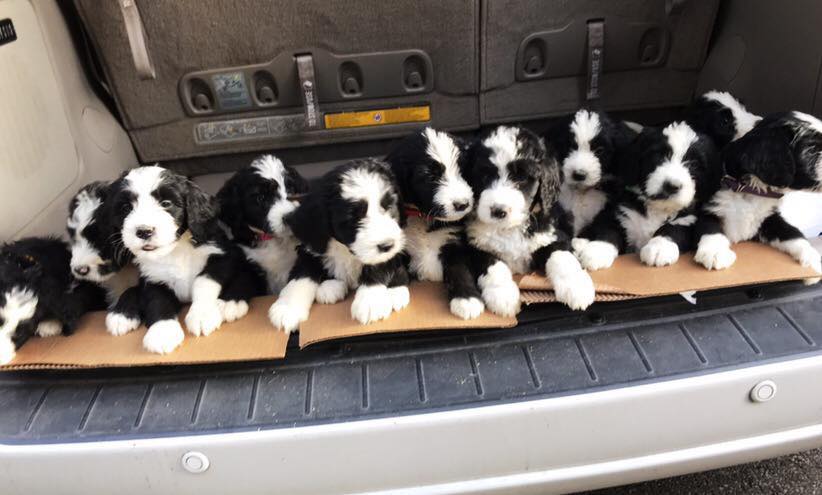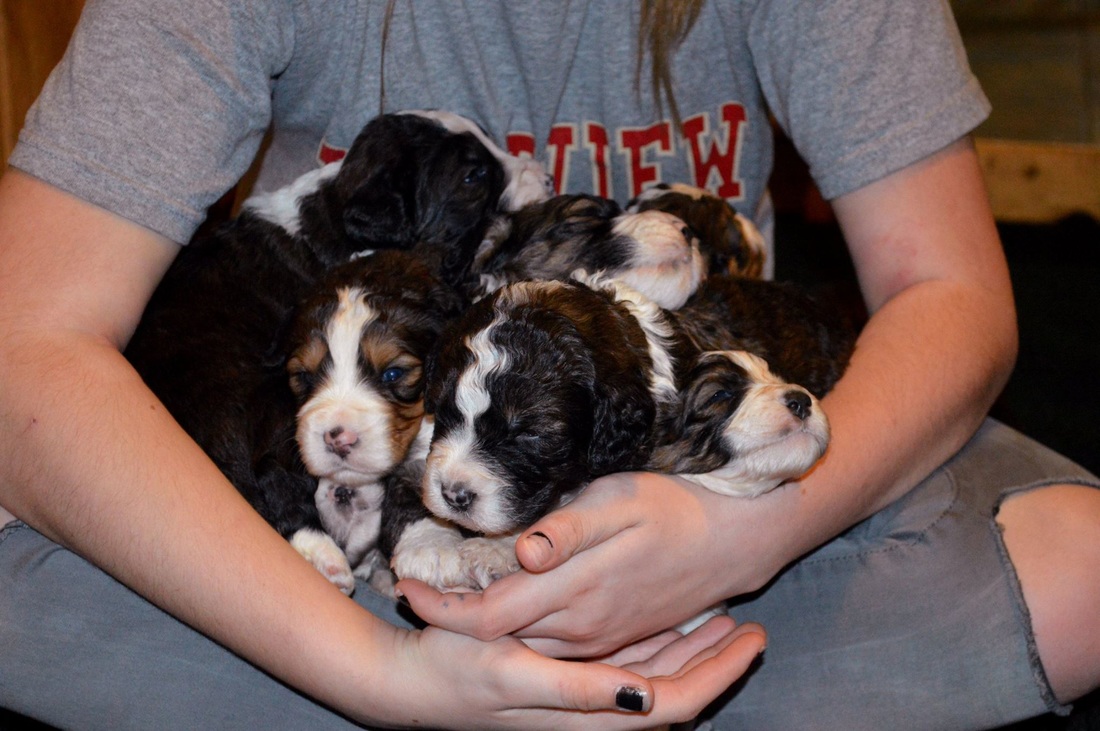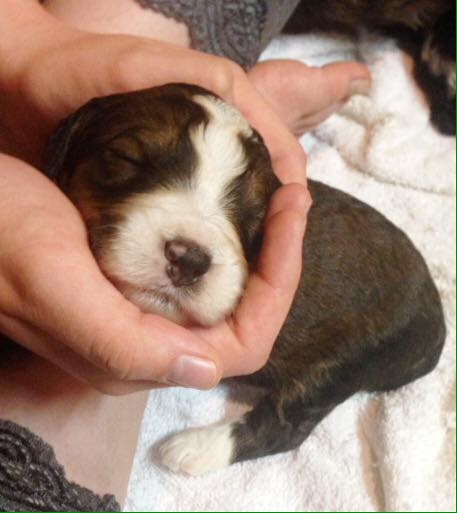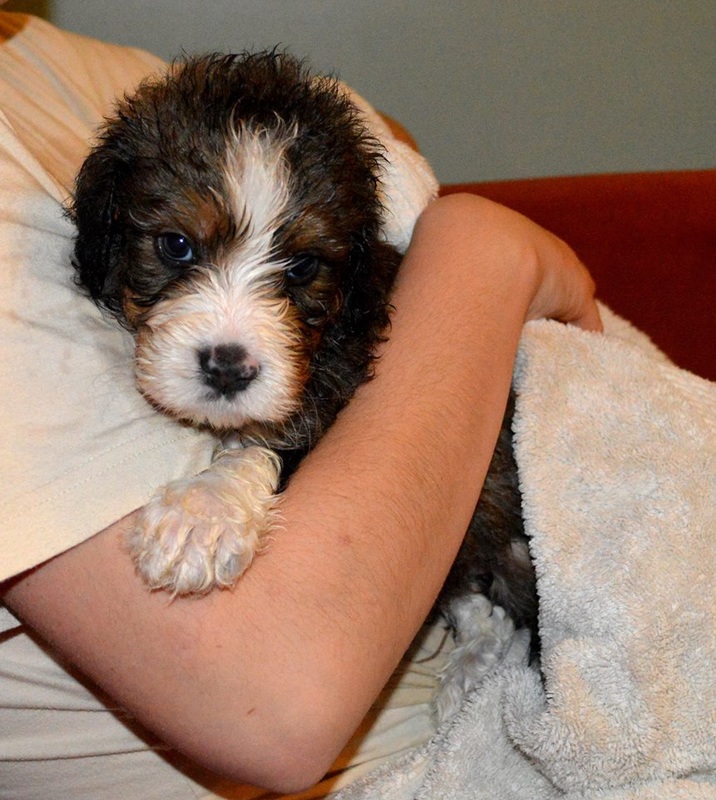Our puppies are born in our home, and are handled from the very beginning. We help the mamas with the delivery as much as needed, but try not to interfere any more than necessary. Our mama dogs are our babies, and most of them would like to deliver the puppies while sitting on our laps if possible!
We try to make everything as calm and peaceful for the mamas as we can. While they are laboring, and until the puppies are three weeks old, each mom has their own room where they can deliver and nurse the puppies in peace and away from the other dogs. In these rooms, we are able to control the temperature to make sure that the puppies are always comfortable, and (laugh if you must) we are able to have low-lighting, peaceful music, and occasionally some dog-friendly oils in a diffuser. Once the puppies are three weeks old, they often start sharing rooms and helping each other with the puppies. Many of our mamas will nurse any puppies, not just their own. They just love babies!
When the puppies are three days old, we take them to the veterinarian for the first time, for a puppy exam and to have their dewclaws removed. During the first week, we divide the puppies into two or three groups, with each group sleeping in its own box on a heating pad. We give the puppies to their mothers for feeding and care, but then they go back into the boxes with the heating pads, to keep them safe from accidentally being laid on by over-exhausted mamas. During this time, we often supplement with bottle-feeding a home-made goats' milk formula, in order to take some of the burden off of the mothers. All of the puppies are marked with a yarn collar at birth, replaced by a leather collar once they move into the whelping box. This helps us to keep track of which puppies are gaining weight the fastest, and the slowest, and determine who might need supplemental feeding.
Once the puppies are about 3 weeks old, we move them from their warming boxes into the puppy play box. At this point the begin to get up on their feet and explore, and they are introduced to their indoor potty area to help assist in early house-training.
-----------------------------------------------------------------------------------------------------------------------------------------------------------------------
The mamas get lots of farm fresh eggs from our chickens while they are working to produce milk to keep up with their puppies. If they aren't making enough milk, we do supplemental bottle feeding for the puppies, but we try to help them make as much as they can!
The mamas get lots of farm fresh eggs from our chickens while they are working to produce milk to keep up with their puppies. If they aren't making enough milk, we do supplemental bottle feeding for the puppies, but we try to help them make as much as they can!
-----------------------------------------------------------------------------------------------------------------------------------------------------------------------
Having a potty area in their whelping box teaches the puppies that there is a designated area for them to potty. They become accustomed to using the potty area very quickly, usually within the first couple of days. We use compressed pine litter in this area, for cleanliness, and so that when the puppy goes to his or her new home, their new owner takes home a small bag of (clean!) pine litter, to put in the yard, where they want the puppy to potty. Then, during house-training, they take the puppy to where the pine litter is, and the smell helps the puppy to remember what to do. By the time the puppy is trained where to go, the pine litter washes away with the rain, and what is left is a puppy who knows where to potty! We've had a lot of people have great results with this method!
Having a potty area in their whelping box teaches the puppies that there is a designated area for them to potty. They become accustomed to using the potty area very quickly, usually within the first couple of days. We use compressed pine litter in this area, for cleanliness, and so that when the puppy goes to his or her new home, their new owner takes home a small bag of (clean!) pine litter, to put in the yard, where they want the puppy to potty. Then, during house-training, they take the puppy to where the pine litter is, and the smell helps the puppy to remember what to do. By the time the puppy is trained where to go, the pine litter washes away with the rain, and what is left is a puppy who knows where to potty! We've had a lot of people have great results with this method!
-----------------------------------------------------------------------------------------------------------------------------------------------------------------------
This is also when we begin feeding the puppies their first tastes of solid food, to begin the weaning process. They start out on goats' milk, then transition to goats' milk-soaked food, then gradually we decrease the milk until they are eating dry food. The puppies are completely weaned by the time they are five to six weeks old, but they stay with us until they are eight weeks old, so that their siblings and our adult dogs can continue to teach them valuable behavioral lessons.
This is also when we begin feeding the puppies their first tastes of solid food, to begin the weaning process. They start out on goats' milk, then transition to goats' milk-soaked food, then gradually we decrease the milk until they are eating dry food. The puppies are completely weaned by the time they are five to six weeks old, but they stay with us until they are eight weeks old, so that their siblings and our adult dogs can continue to teach them valuable behavioral lessons.
-----------------------------------------------------------------------------------------------------------------------------------------------------------------------
At about five weeks of age, if the weather/temperature permits, we begin letting the puppies have some playtime outside. Since we live in Indiana, this isn't always possible, but when it is, the puppies and the moms love it!
At about five weeks of age, if the weather/temperature permits, we begin letting the puppies have some playtime outside. Since we live in Indiana, this isn't always possible, but when it is, the puppies and the moms love it!
-----------------------------------------------------------------------------------------------------------------------------------------------------------------------
At six weeks of age, the puppies go to see the veterinarian again, so they can be examined to make sure that everything is great with them, before their new family chooses which puppy they want. At this time, the puppies are retreated for intestinal parasites, and receive their first round of puppy vaccinations.
At six weeks of age, the puppies go to see the veterinarian again, so they can be examined to make sure that everything is great with them, before their new family chooses which puppy they want. At this time, the puppies are retreated for intestinal parasites, and receive their first round of puppy vaccinations.
-----------------------------------------------------------------------------------------------------------------------------------------------------------------------
Our puppies are socialized with kids, adults, cats and other dogs, and are accustomed to being bathed and blow-dried, and having their nails trimmed. We try to ensure that our puppies have only positive experiences while they are with us. We work with the puppies to teach them what is expected of them, so that by the time they go to their new homes, they are sometimes (not always, but sometimes!) no longer exhibiting some typical unpleasant puppy behaviors (such as clothes-biting or hand-chewing).
Our puppies are socialized with kids, adults, cats and other dogs, and are accustomed to being bathed and blow-dried, and having their nails trimmed. We try to ensure that our puppies have only positive experiences while they are with us. We work with the puppies to teach them what is expected of them, so that by the time they go to their new homes, they are sometimes (not always, but sometimes!) no longer exhibiting some typical unpleasant puppy behaviors (such as clothes-biting or hand-chewing).
Ideally, we want to send home puppies who will grow to be well-behaved, calm, low-shedding dogs, who are great with everyone, highly adaptable, and ideal for therapy work. We have heard back from almost everyone who has purchased one of our puppies, and most all agree that the puppy fit perfectly into their family. That makes us very happy, because that is our number one goal!
